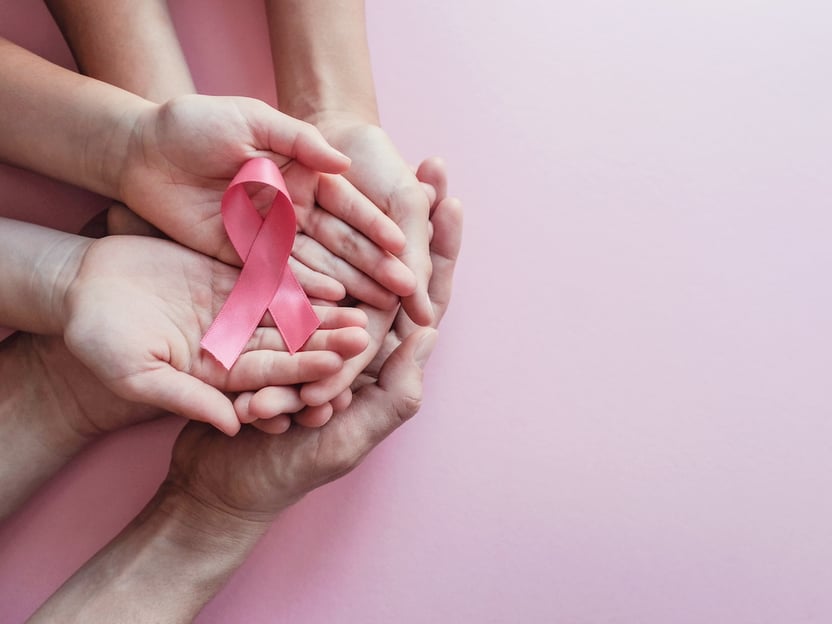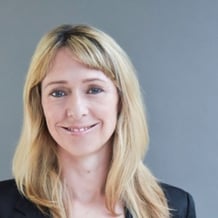
Breast cancer is the most commonly diagnosed form of cancer in women, with several thousand new cases in Austria each year. For some time there have been intensive campaigns using the slogan “Brustkrebs geht uns alle an” (“Breast cancer affects all of us”) to raise awareness of this serious disease. One organization involved in these campaigns is the Awareness Deutschland charity.
 |
We spoke to Sonja Prinz from Awareness Deutschland, who gave us an insight into her charity’s work and explained how important translations are for what they do every day. |
Tell us a bit about yourself and your work at Awareness Deutschland.
Awareness Deutschland is a charitable organization that raises awareness of breast cancer (Pink Ribbon) and prostate cancer (Blue Ribbon) across Germany.
I studied business management with a focus on marketing, and I’ve worked in marketing, communications and project management for many years. My family has been affected by breast cancer, so detecting it early has been a subject close to my heart for a long time. I’m very happy that I can now use my professional experience for a cause that matters so much to me.
How long have you worked for Awareness Deutschland?
I’ve been part of the Pink Ribbon team for just over two years now. Looking back, the time has gone incredibly quickly – which is probably because I absolutely love my job.
What does your job involve specifically?
For Pink Ribbon, I’m mainly responsible for our breastcare app, a free digital tool for advice and help with cancer screening which has been available since March 2021 in the Apple and Google app stores. The special thing about the breastcare app is that it provides information about breast cancer, early detection and a healthy lifestyle in a wide range of languages: the app is currently available in Arabic, English, Farsi, French, German, Russian, Spanish, Turkish and Ukrainian, and more languages are in the pipeline.
Something else I focus on is our “Pink Lunchbreak” online seminars. These free webinars are aimed at employers, who we see as invaluable partners when it comes to giving people information about breast cancer, early detection and a healthy lifestyle, and it’s a way for us to support occupational healthcare. Our webinars are in high demand with businesses, local authorities and ministries, and they’re a great opportunity to discuss breast cancer with the people who take part.
Detecting breast cancer early is key – what exactly does it involve, and how does your work help?
There are many factors that can lead to breast cancer. The risk of developing it can be reduced, though it can’t currently be prevented – so early detection is crucial. The earlier we detect breast cancer, the less radical the treatment options, and the higher the chances of recovery in most cases.
Which projects does Awareness Germany support, and what are the key strategies for your organization?
Our aim with “Pink Ribbon” is to raise awareness of breast cancer in Germany and to make sure all women know what they can do to detect it early and reduce the risk. We don’t just talk to women who have breast cancer: we talk to healthy women too, because breast cancer is a subject which starts before any diagnosis. Early detection can only begin with healthy individuals, so part of our work focuses on classic ways of raising awareness.
But over the years we’ve also added a wide range of exercise activities to what we offer, because regularly doing sport can reduce the risk of breast cancer by up to 20%. One example is the “Pink Walk”, which we organized for the first time in 2023 – a fantastic project where participants set themselves the challenge of doing 10,000 steps every day in May.
A third aspect of our work is projects for family members, who are always affected indirectly when someone is diagnosed with breast cancer.
What are the biggest challenges in your everyday work?
We’re a small but agile team. October is Breast Cancer Awareness Month, and it’s always a bit crazy – we get so many requests, because it’s when most publishers, business and organizations put breast cancer high on their agenda. But breast cancer isn’t restricted to one month or season, so we work all year round.
What’s the reward for all your hard work? Do you have a story for us that shows how fulfilling your work is?
Overall we get lots of positive feedback for the work we do, especially for the projects where we’re in direct contact with people – like projects for family members such as “Pink Paddling”, our “Pink Kids Camps” or our webinars. That’s enough motivation in its own right. But there’s one story in particular which I found very touching. Last year we worked with a fantastic agency to produce a radio ad for our breastcare app which was broadcast on countless radio stations across Germany. One listener heard the ad, downloaded the breastcare app as a result, and despite having just had a medical check-up, checked herself – and she found a lump which had developed very recently. If she hadn’t found that lump at an early stage, her prognosis wouldn’t have been as good. All of us in the team were very moved by the message she sent us.Breast Cancer Awareness Month in October is an opportunity each year to raise public awareness of early detection and prevention, as well as research into breast cancer and how it can be treated. What role does the breastcare app play in this, and how important is the fact that it’s multilingual?
The breastcare app is a very easy way for people to find out more about breast cancer and how it can be detected at an early stage. Breast cancer is a scary disease, so it’s something many of us are reluctant to actively confront. But we think providing information in everyone’s own language makes it easier to do that. “Breast health” is an issue for all women in Germany, whatever their language and cultural background, and many women who weren’t born in Germany aren’t aware of the services that our public health system provides over the course of their lives. The download stats show the scale of the demand: over 50% of our app downloads are in other languages.
Why are translation services relevant here?
For one thing, translating our texts is a pretty complex process – coordinating translators in nine languages is very expensive and time-consuming. On top of that, Arabic, Farsi, Russian and Ukrainian are languages which we can’t read as they have a different alphabet.
How did you find out about MEINRAD.cc?
We were looking for an agency that can handle all the languages we offer, and it wasn’t easy to find one. The Integreat app team recommended MEINRAD to us.
What was your situation before you began working with a translation partner? What do you think are the advantages of working with a translation agency rather than working directly with freelancers?
Before we started working with MEINRAD, we asked individual translators to translate our texts and then got their work proofread. Each translator worked at a very different pace, in part because some of them were doing it on a voluntary basis. It saved us money, but it meant we in the team had more work to do, and the translations were often delivered very late,which as you can imagine caused complications with project management. Getting all our translations from one place, at the same time, makes our work a lot easier.
What’s the in-house translation workflow at Awareness Deutschland?
Once we produce the texts, we enter them sentence by sentence into a table for each language and send them for translation in that format. That sounds very time-consuming, but we have to do it because it’s the only way we can make sure the line breaks, paragraphs and emphasized sections are correct in the app CMS for the languages we can’t read.
What do you expect when working with a translation agency?
The main thing we expect is smooth workflows and the ability to plan schedules and costs.
Is there anything else you’d like to say to people reading our blog?
We’d like to invite all readers find out more about breast cancer. Over 70,000 women in Germany are diagnosed with breast cancer every year, and when you bear in mind the indirect impact it has on their families and that this disease remains part of women’s lives long beyond the treatment itself, you can appreciate the scale of this issue for society. Breast cancer affects all of us.
Thank you for talking to us!
| 8 March is International Women’s Day. As well as celebrating all women around the world, we want to use this day to encourage women to take breast cancer seriously, and ideally to check their breasts today. The breastcare app from Awareness Germany will help! You can download it here. |
Main image © Adobe Stock

